ThEME
Business
Inspirers
- A.G. Lafley
- Abraham Maslow
- Adolf A. Berle
- Akio Morita
- Alan Mulally
- Alfred P. Sloan
- Andrew Carnegie
- Andrew S. Grove
- Arthur Rock
- Atul Gawande
- Bill Gates
- Bill George
- Bill Reddin
- C.K. Prahalad
- Charles Handy
- Charles T. Munger
- Chester I. Barnard
- Chris Argyris
- Clayton M. Christensen
- Dan Shechtman
- Daniel Kahneman
- David Ogilvy
- David Sarnoff
- Don Tapscott
- Doris Drucker
- Douglas McGregor
- Douglas Woodward
- Dwight D. Eisenhower
- Edgar H. Schein
- Éleuthère Irénée du Pont
- Eli Whitney
- Elton Mayo
- Ervin Goffman
- F.J. Roethlisberger
- Frances Hesselbein
- Frank Bunker Gilbreth
- Frederick Hertzberg
- Frederick W. Taylor
- Gary Hamel
- Geert Hofstede
- George Eastman
- George Soros
- Harold Geneen
- Harry Arthur Hopf
- Henri Fayol
- Henry Ford
- Henry Gantt
- Henry Luce
- Henry Mintzberg
- Herbert Simon
- Hermann Simon
- Howard Gardner
- Hugo Munsterberg
- Ikujiro Nonaka
- Jack Welch
- Jan W. Rivkin
- Jay Forrester
- Jeffery Bezos
- Jim Collins
- John Adair
- John P. Kotter
- John W. Gardner
- Jon Katzenbach
- Joseph A. Schumpeter
- Joseph L. Badaracco Jr.
- Joseph M. Juran
- Joseph Scanlon
- Karl E. Weick
- Karl Marx
- Ken Olsen
- Kenichi Ohmae
- Kenneth Roman
- Konsuke Matsushita
- Lynda Gratton
- Marvin Bower
- Mary Parker Follett
- Max Weber
- Michael E. Porter
- Mick Jagger
- Muhammad Yunus
- Nicolo Machiavelli
- Paul Polman
- Peter F. Drucker
- Peter Senge
- Phillip Kotler
- Phillip Selznick
- Po Chung
- Regina Herzlinger
- Rensis Likert
- Ricardo Semler
- Robert E. Wood
- Robert H. Waterman
- Robert K. Greenleaf
- Robert S. Kaplan
- Roger L. Martin
- Rosabeth Moss Kanter
- Russell L. Ackoff
- Sam Walton
- Seth Godin
- Sir Cyril Burt
- Soichiro Honda
- Steve Jobs
- Sumantra Ghoshal
- Sun Tzu
- Ted Levitt
- Theodore Vail
- Thomas Edison
- Thomas J. Watson Sr.
- Tojin Eapen
- Tom Davenport
- Tom Peters
- W. Edwards Deming
- Walter Wriston
- Warren Bennis
- Wendy Kopp
- William H. Donaldson
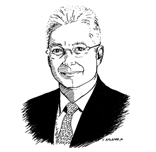
A.G. Lafley
(1947-)
CEO, president, and chairman of the board of Procter & Gamble Alan G. (A.G.) Lafley ascended from a 1977 entry-level position to head of P&G Asia in 1995. Increased profits tenfold in China, and became president of P&G North America in 1998 and CEO in 2000. Took the number of billion-dollar P&G brands from 10 to 22 in one decade. Recognized as CEO of the Future, and Distinguished Leader. Retired in 2010 but returned in 2013. Coauthored “Playing to Win” with Roger L. Martin in 2013 and has written articles for Harvard Business Review.
Notice: Only variables should be passed by reference in /home/nycpcom/public_html/www.nycp.com/page/authors.php on line 71
View Quotes
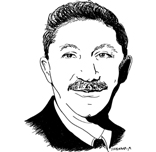
Abraham Maslow
(1908-1970)
Psychologist and professor Abraham Maslow is known for his “hierarchy of needs,” which appeared in his 1943 paper “A Theory of Human Motivation” and blazed a trail for psychological thinkers for years to come. Although twice nominated to be head of the American Psychological Association, declined, saying that an intellectual movement should not have a leader. Taught at Columbia University, Brooklyn College, and Brandeis University. Educated at City College of New York and University of Wisconsin.
Notice: Only variables should be passed by reference in /home/nycpcom/public_html/www.nycp.com/page/authors.php on line 71
View Quotes
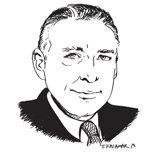
Adolf A. Berle
(1895-1971)
Lawyer, educator, and diplomat Adolf A. Berle cowrote the most referenced book on the role of corporations, “The Modern Corporation and Private Property” (1927), which presented a theory of economic concentration and said that the U.S. economy was in the hands of the 200 largest companies. Part of Franklin D. Roosevelt’s original brain trust. Was an intelligence officer in the military during World War I, and afterward taught and practiced law. Studied at Columbia and Harvard. Youngest-ever graduate of Harvard Law School at 21.
Notice: Only variables should be passed by reference in /home/nycpcom/public_html/www.nycp.com/page/authors.php on line 71

Akio Morita
(1921-1999)
While doing research as his service in the Imperial Japanese Navy, mathematician and businessman Akio Morita met engineer Masaru Ibuka, who invited him to join his company after the war. Sony would popularize many advances in personal electronic technology, including the Walkman, the Betamax, and the Trinitron television. Bought the CBS Records Group in 1988, making Sony a force in media as well. Held a degree in physics from Osaka Imperial University.
Notice: Only variables should be passed by reference in /home/nycpcom/public_html/www.nycp.com/page/authors.php on line 71
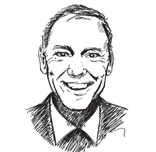
Alan Mulally
(1945-)
Engineer and executive Alan Mulally started at Boeing in 1969, where he rose from entry-level engineer to president and CEO. Hired as president and CEO of Ford in 2006. Appointed to President Barack Obama’s councils of export and competitiveness in 2011. Received degrees in engineering from the University of Kansas. Went back to school at age 37 to receive an SM from MIT Sloan School of Management.
Notice: Only variables should be passed by reference in /home/nycpcom/public_html/www.nycp.com/page/authors.php on line 71
View Quotes
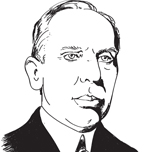
Alfred P. Sloan
(1875-1966)
Business executive Alfred P. Sloan began his career at a bearing company that was absorbed into General Motors. Quickly rose to become president and chairman of the board. Recognized as one of the most shrewd and rational managers, growing GM to become the largest corporation for decades. Founded the Sloan Fellows, the first university-based executive education program, at MIT, where he had earned his degree. Devoted to philanthropic activities through his foundation and other organizations. Sponsored Peter Drucker’s study of General Motors.
Notice: Only variables should be passed by reference in /home/nycpcom/public_html/www.nycp.com/page/authors.php on line 71

Andrew Carnegie
(1835-1919)
Scottish-born entrepreneur and philanthropist Andrew Carnegie emigrated to the U.S. At 13, worked in a cotton factory. Became a telegrapher and a railroad superintendent, invested successfully, and eventually created the Carnegie Steel Co. and sold it to J.P. Morgan, amassing an even larger fortune. Then turned his attention to works of mass philanthropy, focusing on causes as diverse as libraries, music, art, telescopes, and education. Also an activist, opposing the annexation of Cuba and fighting for the Philippines’ independence.
Notice: Only variables should be passed by reference in /home/nycpcom/public_html/www.nycp.com/page/authors.php on line 71
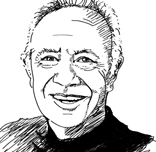
Andrew S. Grove
(1936-)
Physicist and engineer Andrew (Andy) S. Grove pioneered semiconductor research at Fairchild Semiconductor. Joined Intel on the company’s first day in 1968. Served as COO, president, CEO, and chairman of the board. Now a senior adviser. Named Time magazine’s Man of the Year in 1997 for being at the forefront of the digital revolution. Champions research in Parkinson’s disease. Bachelor of chemical engineering from City College of New York and PhD in chemical engineering from University of California, Berkeley.
Notice: Only variables should be passed by reference in /home/nycpcom/public_html/www.nycp.com/page/authors.php on line 71
View Quotes
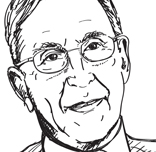
Arthur Rock
(1926-)
Venture capitalist Arthur Rock is known for convincing Sherman Fairchild to start Fairchild Semiconductor and for investing early in Apple, Intel, and Teledyne. Began as a securities analyst in New York but quickly moved to corporate finance at Hayden, Stone & Co., where he worked on raising money for small high-tech companies. Established Arthur Rock Center for Entrepreneurship at Harvard Business School. Earned degrees from Syracuse University and Harvard Business School.
Notice: Only variables should be passed by reference in /home/nycpcom/public_html/www.nycp.com/page/authors.php on line 71
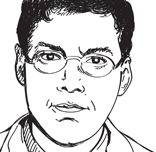
Atul Gawande
(1965-)
Surgeon and author Atul Gawande, while a surgical resident, wrote an article for Slate magazine that got the attention of the New Yorker magazine, which made him a staff writer in 1998. Articles focus on the problems with America’s health care system and posit ideas on how to fix it. Writes and lectures on how to make surgery more efficient and how to reduce error. Named a MacArthur Fellow in 2006. Educated at Stanford University, Oxford, Harvard Medical School, and Harvard School of Public Health.
Notice: Only variables should be passed by reference in /home/nycpcom/public_html/www.nycp.com/page/authors.php on line 71
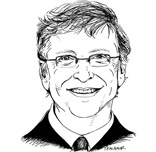
Bill Gates
(1955-)
Programmer and entrepreneur Bill Gates dropped out of Harvard to cofound Microsoft. Through a partnership with IBM, Microsoft became the world leader in computer software, and its operating system, Windows, became the foundation of the modern computer and Internet era. Gates was the wealthiest man alive, 1995–2005, and remains high on every Fortune magazine list. Also a dedicated philanthropist, created the Gates-Buffett Giving Pledge to persuade billionaires to give half their money to charity.
Notice: Only variables should be passed by reference in /home/nycpcom/public_html/www.nycp.com/page/authors.php on line 71
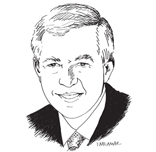
Bill George
(1941-)
Academic, businessman, and author Bill George is professor of management practice at Harvard Business School. Joined Medtronic as president and COO in 1989 and advanced to CEO and chairman of the board. Worked for U.S. Department of Defense and was a senior executive of Honeywell and Litton Industries. Author of “Seven Lessons for Leading in Crisis.” On the board of Goldman Sachs, Exxon Mobil, and the Mayo Clinic. Graduated from Georgia Institute of Technology and Harvard University, where he was a Baker Scholar.
Notice: Only variables should be passed by reference in /home/nycpcom/public_html/www.nycp.com/page/authors.php on line 71
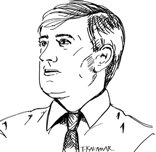
Bill Reddin
(1930-1999)
Professor, thinker, and consultant Bill Reddin wrote many books on management, including “Managerial Effectiveness” and “Effective Management by Objectives.” Credited with creating the 3D theory of managerial effectiveness. Credited Peter Drucker with influencing his thinking. Educated at Harvard and went on to teach at MIT, where he was a Sloan Doctoral Fellow.
Notice: Only variables should be passed by reference in /home/nycpcom/public_html/www.nycp.com/page/authors.php on line 71
View Quotes
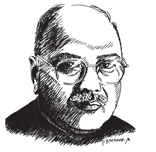
C.K. Prahalad
(1941-2010)
Professor, author, and consultant C.K. Prahalad is known for his concepts of core competency, “bottom of the pyramid” strategy, and always asking, “What did you learn?” Wrote many books on corporate strategy, some with Gary Hamel. Featured as leading thinker behind Business 2.0 at the 2009 Peter Drucker Society Forum. Paul and Ruth McCracken Distinguished University Professor of Strategy at the Ross School of Business, University of Michigan. Earned his PhD in two and a half years from Harvard Business School.
Notice: Only variables should be passed by reference in /home/nycpcom/public_html/www.nycp.com/page/authors.php on line 71
View Quotes
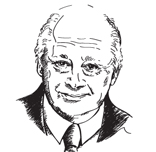
Charles Handy
(1932-)
Social philosopher and professor Charles Handy attended MIT Sloan School of Management, where he worked with Edgar Schein, Warren Bennis, and Mason Haire. Developed the Sloan program at London Business School. Was the first visiting fellow at Drucker School of Management at Claremont Graduate University. Has written 18 books, received seven honorary doctoral degrees, and is a Commander of the British Empire. With wife, Elizabeth, recognized as one of the top leadership thinkers in the world. Educated at Oriel College, Oxford.
Notice: Only variables should be passed by reference in /home/nycpcom/public_html/www.nycp.com/page/authors.php on line 71
View Quotes
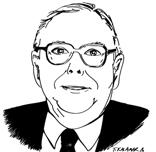
Charles T. Munger
(1924-)
Charles T. Munger is Warren Buffett’s investing partner. As director of Berkshire Hathaway, has been on the Forbes 400 four times since 2000. Often referred to as Buffett’s right-hand man, and has directed companies including Wesco, Costco, and Blue Chip Stamps. Considered the pragmatist at Berkshire Hathaway. Dropped out of the University of Michigan, served in the U.S. Army Air Corps as a meteorologist, and later earned a JD from Harvard Law School.
Notice: Only variables should be passed by reference in /home/nycpcom/public_html/www.nycp.com/page/authors.php on line 71
View Quotes
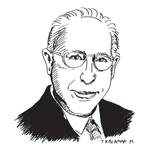
Chester I. Barnard
(1886-1961)
Business theorist and executive Chester I. Barnard, “the father of systems thinking,” was a pioneer of management theory, but was first and foremost a practitioner. Started as a statistician at AT&T and rose to be its president. Served as president of the USO and the Rockefeller Foundation, and chaired the National Science Foundation. His pivotal work is “The Functions of the Executive.” Studied economics at Harvard University.
Notice: Only variables should be passed by reference in /home/nycpcom/public_html/www.nycp.com/page/authors.php on line 71
View Quotes
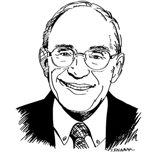
Chris Argyris
(1923-)
Business theorist and professor Chris Argyris’s research has focused on formal organizational structures, control systems, and individual management. Has written many books on management and learning topics. Upon finishing his army service, became a professor at Yale University and later at Harvard University, where he is professor emeritus. Educated at Kansas University and Cornell University.
Notice: Only variables should be passed by reference in /home/nycpcom/public_html/www.nycp.com/page/authors.php on line 71
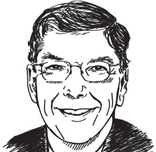
Clayton M. Christensen
(1952-)
Economist, professor, and author Clayton M. Christensen is the founder of Innosight, a consulting firm, and Rose Park Advisors, which invests in disruptive companies. In 2011, was designated the most influential business writer by Harvard Business Review. Has written five award-winning books on innovation and world issues. Kim B. Clark Professor of Business Administration at Harvard Business School. Holds four honorary doctoral degrees. Educated at Brigham Young University, Oxford, and Harvard Business School.
Notice: Only variables should be passed by reference in /home/nycpcom/public_html/www.nycp.com/page/authors.php on line 71
View Quotes
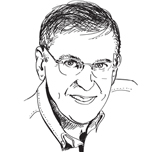
Dan Shechtman
(1941-)
Professor Dan Shechtman won the 2011 Nobel Prize in Chemistry for discovering quasiperiodic crystals and opening up this branch of science. Earned PhD at the Technion in Israel, where, as Distinguished Professor in Department of Materials Science and Engineering, has taught technological entrepreneurship to 10,000 students. Received the Wolf Prize in Physics, Gregori Aminoff Prize of the Royal Swedish Academy of Sciences, and the European Materials Research Society award.
Notice: Only variables should be passed by reference in /home/nycpcom/public_html/www.nycp.com/page/authors.php on line 71
View Quotes
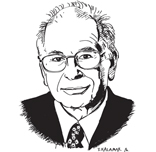
Daniel Kahneman
(1934-)
Psychologist, professor, and author Daniel Kahneman received the 2002 Nobel Prize in Economic Sciences for his work in challenging the rational model of human decision-making, leading to what is known as behavioral economics. Author of the widely acclaimed best-seller “Thinking, Fast and Slow.” Senior Scholar at Princeton’s Woodrow Wilson School of Public and International Affairs, and professor of psychology and public affairs emeritus. Educated at Hebrew University of Jerusalem and University of California, Berkeley.
Notice: Only variables should be passed by reference in /home/nycpcom/public_html/www.nycp.com/page/authors.php on line 71
View Quotes
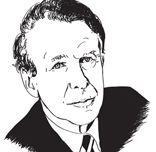
David Ogilvy
(1911-1999)
“The father of modern advertising,” David M. Ogilvy came to the U.S. after working for an advertising firm in London and worked for George Gallup. Later started Ogilvy & Mather, which became the 10th-largest ad agency in the world. With his unorthodox strategies, created iconic ads for Sears, Dove, Shell, and American Express. Honored as a Commander of the British Empire. Attended Christ Church, Oxford.
Notice: Only variables should be passed by reference in /home/nycpcom/public_html/www.nycp.com/page/authors.php on line 71
View Quotes

David Sarnoff
(1891-1971)
Businessman and CEO David Sarnoff is known as the father of broadcasting, his central tenet being that the value of broadcasting is not in its profits but in the number of its viewers and listeners. Began as an office boy at Marconi Wireless Telegraph and rose to senior management in 13 years. Headed RCA when it was changed over from American Marconi. Established the AM broadcast network and is credited for first recognizing the potential of television.
Notice: Only variables should be passed by reference in /home/nycpcom/public_html/www.nycp.com/page/authors.php on line 71
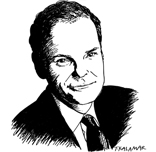
Don Tapscott
(1947-)
Academic, executive, and author Don Tapscott is a leading contributor on how technology affects business. Has written or cowritten multiple books on the subject, including “Wikinomics: How Mass Collaboration Changes Everything.” Adjunct professor at the Rotman School of Management of the University of Toronto and holds three honorary degrees.
Notice: Only variables should be passed by reference in /home/nycpcom/public_html/www.nycp.com/page/authors.php on line 71
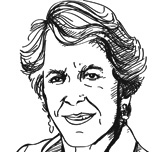
Doris Drucker
(1912-)
Inventor and entrepreneur Doris Drucker, wife of Peter Drucker, at the age of 85 started a company to manufacture a patented device to warn public speakers when their voices dropped too low. Honored by Claremont Graduate University with the Doris Drucker Women in Leadership Fellowship. On board of advisers of the Drucker Institute. Worked as a scientific researcher. Studied law and economics at the London School of Economics, Kiel University, and Frankfurt University. Holds a master’s degree in physics from Fairleigh Dickinson University.
Notice: Only variables should be passed by reference in /home/nycpcom/public_html/www.nycp.com/page/authors.php on line 71
View Quotes
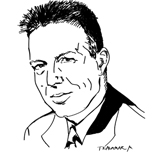
Douglas McGregor
(1906-1964)
Author and thought leader Douglas McGregor’s book, “The Human Side of Enterprise,” had a profound influence on management practices. His Theory X and Theory Y investigated the effect of a manager’s thinking on his workers. Taught at MIT Sloan School of Management. Earned a BA from the City College of Detroit, and then went to Harvard University, where he earned an MA and a PhD in social psychology.
Notice: Only variables should be passed by reference in /home/nycpcom/public_html/www.nycp.com/page/authors.php on line 71
View Quotes
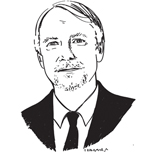
Douglas Woodward
(1956-)
Scholar of regional economic development, clustering, and international economics Douglas Woodward has conducted sponsored economic research in the U.S., China, Morocco, South Africa, and Kenya. Director of Division of Research and economics professor at the Darla Moore School of Business, University of South Carolina. Received an MA from New York University and a PhD from the University of Texas.
Notice: Only variables should be passed by reference in /home/nycpcom/public_html/www.nycp.com/page/authors.php on line 71
View Quotes
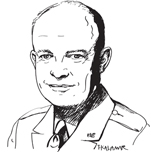
Dwight D. Eisenhower
(1890-1969)
General and President Dwight D. Eisenhower served as a major general in the North African theater in World War II and then became Supreme Allied Commander of Europe as a five-star general. Following the war, elected 34th president of the United States. Enduring contributions include the Interstate Highway System, his foreign policy and the Korean War, and his stance on civil rights. First supreme commander of NATO. President of Columbia University. Educated at West Point.
Notice: Only variables should be passed by reference in /home/nycpcom/public_html/www.nycp.com/page/authors.php on line 71
View Quotes
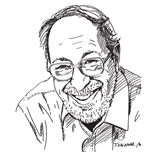
Edgar H. Schein
(1928-)
Social psychologist, teacher, and author Edgar H. Schein is known for his model of organizational culture and his work with Singapore, DEC, and other leading-edge organizations. Consultant to major corporations worldwide. Led much of the work at MIT Sloan School of Management on organizations and continuous learning. A fellow of the American Psychological Association and the Academy of Management. Holds degrees from University of Chicago, Stanford University, and Harvard University.
Notice: Only variables should be passed by reference in /home/nycpcom/public_html/www.nycp.com/page/authors.php on line 71
View Quotes

Éleuthère Irénée du Pont
(1771-1834)
Chemist and industrialist Éleuthère Irénée du Pont fled the French Revolution and emigrated to the U.S. Built a mill to manufacture superior gunpowder, and his company, E.I. du Pont de Nemours and Co., grew into one of America’s first great businesses. Studied with famed chemist Antoine Lavoisier to learn advanced explosives techniques.
Notice: Only variables should be passed by reference in /home/nycpcom/public_html/www.nycp.com/page/authors.php on line 71

Eli Whitney
(1865-1925)
Inventor and businessman Eli Whitney is best known for inventing the cotton gin, which made cotton a profitable crop and which bolstered the economy of the antebellum southern United States. Popularized the concept of interchangeable parts, using them in his musket-making business and changing the course of American industry. Educated at Yale College.
Notice: Only variables should be passed by reference in /home/nycpcom/public_html/www.nycp.com/page/authors.php on line 71
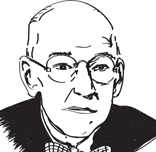
Elton Mayo
(1880-1949)
Psychologist and organization theorist Elton Mayo was known as “the father of human relations.” Oversaw the 1930s Hawthorne Studies for Western Electric, considered groundbreaking in discussing cooperation and social needs in the workplace. Taught at University of Queensland, the University of Pennsylvania, and Harvard Business School.
Notice: Only variables should be passed by reference in /home/nycpcom/public_html/www.nycp.com/page/authors.php on line 71
View Quotes

Ervin Goffman
(1922-1982)
Social scientist and theorist Ervin Goffman earned degrees from the Universities of Alberta, Toronto, and Chicago. While in Chicago, he researched many topics concerning mental illness and asylums. He became a professor at Berkeley, and moved to the University of Pennsylvania, where he was a professor until his death. He is considered the most influential sociologist of the 20th century, and his work The Presentation of Self in Everyday Life continues to be studied by all sociologists today.
Notice: Only variables should be passed by reference in /home/nycpcom/public_html/www.nycp.com/page/authors.php on line 71
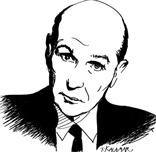
F.J. Roethlisberger
(1898-1974)
Social scientist and management thinker F.J. Roethlisberger is best known for his work on the Hawthorne Studies for Western Electric with his Harvard colleague Elton Mayo. Taught at Harvard Business School, eventually becoming Wallace Brett Donham Professor of Human Relations, a position he held for 24 years. Received degrees from Columbia University, MIT, and Harvard University.
Notice: Only variables should be passed by reference in /home/nycpcom/public_html/www.nycp.com/page/authors.php on line 71
View Quotes
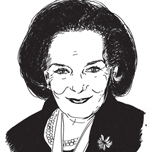
Frances Hesselbein
(Age is irrelevent—F. Hesselbein)
Called a “Rushmore-ian figure” of leadership by Warren Bennis, Frances Hesselbein is a consultant, speaker, and CEO and president of the Frances Hesselbein Leadership Institute. Reinvented and contemporized the Girl Scouts of the U.S.A. in 1976 and became the first female Class of 1951 Chair for the Study of Leadership at West Point. Has received countless awards, including the Presidential Medal of Freedom. Peter Drucker said of her, “Frances Hesselbein could manage any company in America.”
Notice: Only variables should be passed by reference in /home/nycpcom/public_html/www.nycp.com/page/authors.php on line 71
View Quotes

Frank Bunker Gilbreth
(1868-1924)
Author and theoretician Frank Bunker Gilbreth’s obsession with eliminating wasted effort led to him being known as the father of motion study, research that made the repetitive motions of workers more bearable. Was a bricklayer before forming his own construction company and personally patented several innovations in the field of construction. Received no education past high school, although he became a lecturer at Purdue University years later.
Notice: Only variables should be passed by reference in /home/nycpcom/public_html/www.nycp.com/page/authors.php on line 71
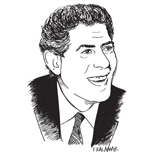
Frederick Hertzberg
(1923-2000)
Author and professor Frederick Herzberg served as an officer during World War II and was awarded the Bronze Star. Upon returning, crafted the Two-Factor Theory, which deals with the motivation and influence that makes for a successful workforce. His article “One More Time, How Do You Motivate Employees?” is the most requested article in the history of the Harvard Business Review. Received degrees from City College of New York and University of Pittsburgh.
Notice: Only variables should be passed by reference in /home/nycpcom/public_html/www.nycp.com/page/authors.php on line 71
View Quotes
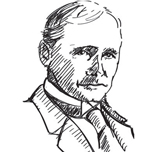
Frederick W. Taylor
(1865-1915)
Engineer and businessman Frederick W. Taylor worked as chief engineer for Bethlehem Steel. Known for his book “The Principles of Scientific Management” (1911), dealing with analyzing tasks and finding the fastest way to complete them—the productivity-enhancing process that set early guidelines for modern management consulting. Studied at night to earn a degree in mechanical engineering from Stevens Institute of Technology.
Notice: Only variables should be passed by reference in /home/nycpcom/public_html/www.nycp.com/page/authors.php on line 71
View Quotes
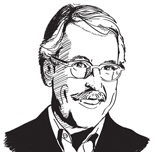
Gary Hamel
(1954-)
Professor and author Gary Hamel has challenged conventional management to be more human and hence more innovative from the “ivy leagues” for over 30 years. Teaches at London Business School and is a cofounder and leader of the Management Innovation Exchange (MIX), an effort to reinvent management with an online community. A Fellow of the World Economic Forum and the Strategic Management Society, and recognized as one of the leading influencers of management globally. Educated at Andrews University and holds a PhD from University of Michigan.
Notice: Only variables should be passed by reference in /home/nycpcom/public_html/www.nycp.com/page/authors.php on line 71

Geert Hofstede
(1854-1932)
Social psychologist and academic Geert Hofstede joined IBM Europe as a management trainer. Conducted research with over 100,000 participants from 40 countries to see how culture influences values in the workplace. Holds eight honorary doctorates and three honorary professorships. Attended technical college in Delft, and after becoming a technical officer in the Dutch military, attained his doctorate from Groningen University.
Notice: Only variables should be passed by reference in /home/nycpcom/public_html/www.nycp.com/page/authors.php on line 71

George Eastman
(1854- 1932)
Inventor and philanthropist George Eastman was almost completely self-educated. In 1885, copatented the roll film, which allowed people to take their own photographs. In 1888, created the Kodak, a mass-produced camera for the public. Instituted profit sharing for his employees. Was a major philanthropist and endowed the Eastman School of Music.
Notice: Only variables should be passed by reference in /home/nycpcom/public_html/www.nycp.com/page/authors.php on line 71

George Soros
(1862-1947)
Investor and philanthropist George Soros was 13 when Nazi Germany invaded his homeland of Hungary. Moved to England, then to New York and began working as an analyst, when he came up with his theory of reflexivity, which predicts cycles in the marketplace. Began multiple successful hedge funds, starting in the 1960s, and is known for his talent at currency speculation, especially when he made $1 billion on Black Wednesday in 1992. Noted philanthropist, supporting a wide range of causes. Graduated from London School of Economics.
Notice: Only variables should be passed by reference in /home/nycpcom/public_html/www.nycp.com/page/authors.php on line 71

Harold Geneen
(1910-1997)
Businessman Harold Geneen was senior vice president of the defense contractor Raytheon before he became president and CEO of ITT, which he grew from a $771 million company into the archetypal multinational conglomerate, with $17 billion in sales per year. Had many business interests, including hotels and insurance. Wrote four books on business and management. Studied accounting at New York University.
Notice: Only variables should be passed by reference in /home/nycpcom/public_html/www.nycp.com/page/authors.php on line 71

Harry Arthur Hopf
(1882-1949)
Businessman and economist Harry Arthur Hopf worked with life insurance companies until he started publishing scholarly articles on management, which changed life insurance and all other office management. Credited with adapting Frederick W. Taylor’s ideas to office work. Attended the University of New York and Columbia University.
Notice: Only variables should be passed by reference in /home/nycpcom/public_html/www.nycp.com/page/authors.php on line 71
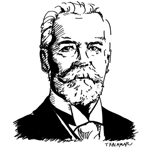
Henri Fayol
(1841-1925)
Engineer and mine director Henri Fayol was an early writer and practitioner of business administration theories that have stood the test of time. Delineated several functions of management, ranging from commanding to forecasting. Educated at a mining college, École Nationale Supérieure des Mines, in Saint-Étienne, France.
Notice: Only variables should be passed by reference in /home/nycpcom/public_html/www.nycp.com/page/authors.php on line 71
View Quotes
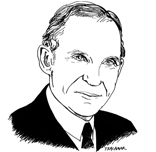
Henry Ford
(1863-1947)
Industrialist and businessman Henry Ford from a young age was fascinated by machines. Began his career as an apprentice at the Michigan Car Co. and later was an engineer at the Edison Electric Illuminating Co. Founded the Ford Motor Co. and developed an automobile that the average person could afford, redefining transportation and industry in America and the world. Developed an international franchise system of dealerships for his vehicles.
Notice: Only variables should be passed by reference in /home/nycpcom/public_html/www.nycp.com/page/authors.php on line 71
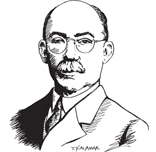
Henry Gantt
(1861-1919)
Mechanical engineer and consultant Henry Gantt was passionate about enterprises being service rather than profit driven. In 1910, developed the Gantt Chart, a tool for time management that was integral in the construction of the Hoover Dam and the Interstate Highway System. Still an important part of project management. Annually, American Society of Mechanical Engineers awards a medal in his name. Received degrees from Stevens Institute of Technology and Johns Hopkins University.
Notice: Only variables should be passed by reference in /home/nycpcom/public_html/www.nycp.com/page/authors.php on line 71
View Quotes
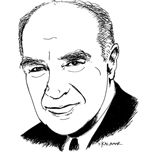
Henry Luce
(1898-1967)
Publisher Henry Luce cofounded Time magazine at age 23, quitting his day job to work on it. Launched Fortune in 1930, Life in 1934, and Sports Illustrated in 1954, making him founder of the majority of high-subscription magazines in America. Graduated from Yale College and studied at Oxford.
Notice: Only variables should be passed by reference in /home/nycpcom/public_html/www.nycp.com/page/authors.php on line 71
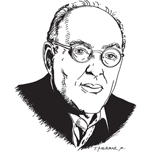
Henry Mintzberg
(1939-)
Cleghorn Professor of Management Studies at McGill University Henry Mintzberg is known for contrarian thinking and blaming leading organizations for “trashing” the American economy. Prolific author and social ecologist. Cofounder of CoachingOurselves.com. Has received 17 honorary degrees from around the world and numerous awards, including being elected to the Royal Society of Canada. Received his undergraduate degree from McGill University and a PhD from MIT Sloan School of Management.
Notice: Only variables should be passed by reference in /home/nycpcom/public_html/www.nycp.com/page/authors.php on line 71
View Quotes
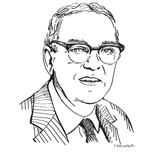
Herbert Simon
(1916-2001)
Political scientist and economist Herbert Simon’s doctoral dissertation became what is now known as “Administrative Behavior,” a behavioral study that became the foundation for much of the research Simon would do later in life. Considered the founder of artificial intelligence. His research in microeconomics and organizational decision-making won him the Nobel Prize in Economic Sciences in 1978; his achievements in the field of AI won him the National Medal of Science in 1986. Received his degrees from University of Chicago.
Notice: Only variables should be passed by reference in /home/nycpcom/public_html/www.nycp.com/page/authors.php on line 71
View Quotes
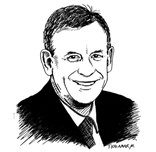
Hermann Simon
(1947-)
Author, consultant, and professor Hermann Simon, as CEO of Simon-Kucher & Partners, was voted the most influential German-language management thinker since his longtime friend Peter F. Drucker. Was a professor of business in Europe and the United States for 20 years. His 30 books have been translated into 25 languages.
Notice: Only variables should be passed by reference in /home/nycpcom/public_html/www.nycp.com/page/authors.php on line 71
View Quotes
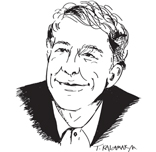
Howard Gardner
(1941-)
Professor, author, and developmental psychologist Howard E. Gardner’s theory of multiple intelligences has been debated and expanded upon since its inception in 1983. Named a MacArthur Fellow in 1981. Author of 28 books translated into 32 languages, is Harvard Graduate School of Education John H. and Elisabeth A. Hobbs Professor of Cognition and Education. Holds a PhD from Harvard University.
Notice: Only variables should be passed by reference in /home/nycpcom/public_html/www.nycp.com/page/authors.php on line 71
View Quotes

Hugo Munsterberg
(1863-1916)
Psychologist and author Hugo Münsterberg, through a correspondence with William James, moved to America and started teaching at Harvard College. While there, made numerous contributions to the fields of applied psychology and forensic psychology. His book “Psychology and Industrial Efficiency” is considered the foundation of industrial psychology. Was a correspondent and admirer of Frederick W. Taylor. Attended the University of Leipzig and received a medical degree from the University of Heidelberg.
Notice: Only variables should be passed by reference in /home/nycpcom/public_html/www.nycp.com/page/authors.php on line 71

Ikujiro Nonaka
(1935-)
Author and professor Ikujiro Nonaka believed that after World War II the Japanese had to adapt their organizational and technical skills to better interact with the rest of the world. Known for his work in knowledge management, especially for his SECI model, which presents the interaction between explicit knowledge and tacit knowledge. Has taught at the Drucker School of Management at Claremont Graduate University and Hitotsubashi University. Received degrees from Waseda University and University of California, Berkeley.
Notice: Only variables should be passed by reference in /home/nycpcom/public_html/www.nycp.com/page/authors.php on line 71
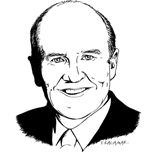
Jack Welch
(1935-)
Chemical engineer, executive manager, and author Jack Welch joined General Electric in 1960, and in 1981 became the company’s youngest chairman. Once at the top, abandoned most of the management structures that were in place and simplified the company, taking it to become the most valuable in the world. Named Manager of the Century by Fortune magazine in 1999. Received degrees from University of Massachusetts and University of Illinois.
Notice: Only variables should be passed by reference in /home/nycpcom/public_html/www.nycp.com/page/authors.php on line 71
View Quotes
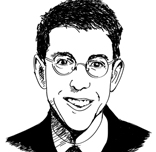
Jan W. Rivkin
(1966-)
Professor and consultant Jan W. Rivkin studies how managerial behavior influences organizations. An expert in the connections among production, logistics, finance, marketing, and other functions in an organization. Bruce V. Rauner Professor of Business Administration at Harvard Business School and chair of the Harvard Business School strategy unit. Educated at Princeton University, London School of Economics, and Harvard University.
Notice: Only variables should be passed by reference in /home/nycpcom/public_html/www.nycp.com/page/authors.php on line 71

Jay Forrester
(1918-)
Scientist and professor Jay Forrester was born on a cattle ranch in Nebraska. He received degrees from the University of Nebraska and the Massachusetts Institute of Technology. He volunteered to join the military after Pearl Harbor and went on to develop military technology and developed the systems that would evolve into modern missile defense systems. In 1956, Forrester moved to Management, and became “father of system dynamics” , using computers to analyze and predict social systems.
Notice: Only variables should be passed by reference in /home/nycpcom/public_html/www.nycp.com/page/authors.php on line 71

Jeffery Bezos
(1964-)
Entrepreneur Jeffrey Bezos started Amazon.com in 1994, taking advantage of a U.S. Supreme Court ruling that businesses did not have to pay sales tax in states where they had no physical presence. Since then, Amazon.com has become one of the most successful companies in America. Had worked on Wall Street and was a vice president at Banker’s Trust. Was Time magazine’s Person of the Year in 1999. Graduated from Princeton University.
Notice: Only variables should be passed by reference in /home/nycpcom/public_html/www.nycp.com/page/authors.php on line 71
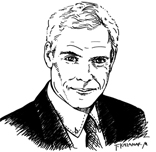
Jim Collins
(1958-)
Consultant, author, and lecturer Jim Collins has written three best-selling books on business. “Good to Great” has sold over eight million copies and has been on the BusinessWeek top 10 for six years. Taught at Stanford University Graduate School of Business, winning numerous awards. Has consulted to the Girl Scouts of the U.S.A., the U.S. Marine Corps, and Johns Hopkins Medical School. Latest book, “Great by Choice,” focuses on willful decisions that make a difference. Holds degrees from Stanford and two honorary doctorates.
Notice: Only variables should be passed by reference in /home/nycpcom/public_html/www.nycp.com/page/authors.php on line 71
View Quotes

John Adair
(1934-)
Author, teacher, and consultant John Adair was a senior lecturer of military history at the Royal Military Academy Sandhurst until 1979, when he became the first professor of leadership studies at the University of Surrey. Has written over 40 books, translated into many languages. Appointed the chair of leadership studies at the United Nations System Staff College in Turin, Italy. Received degrees from Oxford and King’s College London.
Notice: Only variables should be passed by reference in /home/nycpcom/public_html/www.nycp.com/page/authors.php on line 71
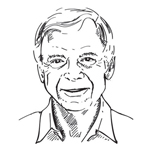
John P. Kotter
(1947-)
Professor John P. Kotter is considered the foremost expert on the topics of change and leadership. Author of 18 books, 12 of which were best-sellers. Konosuke Matsushita Professor of Leadership emeritus at Harvard Business School. Cofounder of Kotter International, which helps Global 5000 company executives learn to lead change. Has won many awards for his books and articles published in the Harvard Business Review. Graduate of MIT and Harvard University.
Notice: Only variables should be passed by reference in /home/nycpcom/public_html/www.nycp.com/page/authors.php on line 71
View Quotes
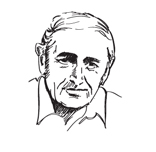
John W. Gardner
(1912-2002)
Public servant and author John W. Gardner was president of the Carnegie Corp. of New York and founded Independent Sector and Common Cause. Secretary of health, education, and welfare under President Lyndon B. Johnson. Instrumental in the creation of Medicare. Awarded the Presidential Medal of Freedom in 1964.
Notice: Only variables should be passed by reference in /home/nycpcom/public_html/www.nycp.com/page/authors.php on line 71
View Quotes
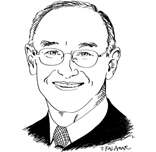
Jon Katzenbach
()
Consultant and author Jon Katzenbach worked closely with Marvin Bower at McKinsey & Co., where he became head of the New York office and a leader in the organizational practice. After 35 years, left to launch Katzenbach Partners. Writings focus on teams, co-leadership, and collaboration. Now runs the Katzenbach Center, a division of Booz & Co. devoted to organizational culture and change. Known for his work with CEOs and succession planning. Served in the U.S. Navy and earned degrees from Stanford University and Harvard University.
Notice: Only variables should be passed by reference in /home/nycpcom/public_html/www.nycp.com/page/authors.php on line 71
View Quotes
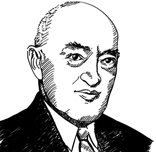
Joseph A. Schumpeter
(1883-1950)
Economist and author Joseph A. Schumpeter is credited with coining the term “creative destruction” in economics. At the time of his publications, his ideas contrasted with those of the then-popular Keynes, delaying their widespread acceptance. His theories laid the groundwork for much of the 20th century’s advances in innovation theory. Emigrated to the U.S. in 1932 and taught at Harvard University. Studied at the University of Vienna and was briefly the Austrian minister of finance.
Notice: Only variables should be passed by reference in /home/nycpcom/public_html/www.nycp.com/page/authors.php on line 71
View Quotes
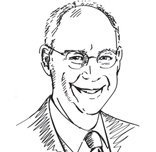
Joseph L. Badaracco Jr.
(1949-)
Professor and author Joseph L. Badaracco’s current research focuses on practical challenges facing responsible leaders in fluid, highly uncertain, intensely competitive environments. Has written several books on leadership and management responsibility. John Shad Professor of Business Ethics at Harvard Business School and has served as chair of the school’s MBA program. Received degrees from St. Louis University, Oxford, and Harvard Business School.
Notice: Only variables should be passed by reference in /home/nycpcom/public_html/www.nycp.com/page/authors.php on line 71
View Quotes

Joseph M. Juran
(1904-2008 )
Manager and chess champion Joseph M. Juran worked at Western Electric’s Hawthorne Works as a statistic department inspector. When promoted to division chief, began spreading his ideas on quality management. Worked in Japan after World War II, at the same time as W. Edwards Deming, and his work there is credited as the success of companies like Sony in the 1970s. Considered to have added the human side to management theory. Held degrees from University of Minnesota and Loyola University Chicago School of Law.
Notice: Only variables should be passed by reference in /home/nycpcom/public_html/www.nycp.com/page/authors.php on line 71
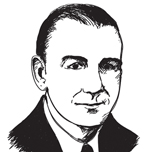
Joseph Scanlon
(1889–1956)
Boxer and accountant Joseph Scanlon was a steelworker and union local president when he devised a plan to help his plant stay afloat during the Great Depression. Set up union-management committees. Suggested that the plant educate its workforce, become better leaders, and reward employees for their hard work. Plan worked and was copied at over 50 institutions. Invited to MIT by Douglas McGregor and went on to analyze 11 studies from a period of 60 years to develop what is now known as the Scanlon Plan.
Notice: Only variables should be passed by reference in /home/nycpcom/public_html/www.nycp.com/page/authors.php on line 71

Karl E. Weick
(1936-)
Organizational theorist and professor Karl E. Weick has written eight books on organizational theory and received numerous awards for his writing and teaching, including an honorary doctorate from the University of St. Gallen (Switzerland). Currently Rensis Likert Distinguished University Professor of Organizational Behavior and Psychology emeritus at the University of Michigan. Received degrees in psychology from Wittenberg University and Ohio State University.
Notice: Only variables should be passed by reference in /home/nycpcom/public_html/www.nycp.com/page/authors.php on line 71

Karl Marx
(1818-1883)
Philosopher, economist, and sociologist Karl Marx, with Friedrich Engels, wrote two of the most important works of the 19th century, “Capital” and “The Communist Manifesto,” which talk of a society without state or class. His ideas are widely studied and debated to this day. Considered one of the most influential thinkers of the millennium, his ideas having brought about modern sociology. Began writing for radical newspapers both during and after his studies at the Universities of Bonn and Berlin.
Notice: Only variables should be passed by reference in /home/nycpcom/public_html/www.nycp.com/page/authors.php on line 71

Ken Olsen
(1926-2011)
Scientist and businessman Ken Olsen, while in graduate school, worked on a computerized flight simulator for the U.S. Dept. of the Navy. Worked on MIT Lincoln Lab’s TX-2 computer, which advanced human-computer interaction. In 1957, cofounded Digital Equipment Corp. (DEC), pioneering the minicomputer, an alternative to the room-size mainframe. Fostered the next generation of computer talent. Known for a management style that was paternal and valued innovation. Served in the U.S. Navy and earned degrees in electrical engineering from MIT.
Notice: Only variables should be passed by reference in /home/nycpcom/public_html/www.nycp.com/page/authors.php on line 71

Kenichi Ohmae
(1943-)
Consultant and author Kenichi Ohmae ran McKinsey & Co.’s Japan operations for many years. His book “The Mind of the Strategist” was an important force in Japanese management thought. Developed the 3C’s model, which outlines the factors of success as the customer, the competitors, and the corporation. Graduated from Waseda University, the Tokyo Institute of Technology, and MIT. Founder of Kenichi Ohmae Graduate School of Business in Tokyo.
Notice: Only variables should be passed by reference in /home/nycpcom/public_html/www.nycp.com/page/authors.php on line 71
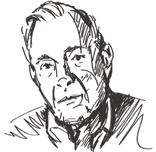
Kenneth Roman
(1930-)
Businessman, author, and consultant Kenneth Roman rose to be CEO of David Ogilvy’s advertising agency, Ogilvy & Mather, in 1985 after spending 26 years working side by side with Ogilvy. Has written two successful books on business and one on the life and work of David Ogilvy.
Notice: Only variables should be passed by reference in /home/nycpcom/public_html/www.nycp.com/page/authors.php on line 71
View Quotes

Konsuke Matsushita
(1894-1989)
Businessman and inventor Konosuke Matsushita is known in Japan as “the god of management.” Formed his own company in 1917 to produce a light socket he invented while working at Osaka Electric Light Co. In 1932, renamed the company Matsushita Electric Industrial Co. and later changed the name to Panasonic. Reformed the company due to its intense growth, creating three independent divisions. Opened an employee training institute. Rebuilt the company after World War II. Oversaw the company until giving it to his son-in-law in 1961.
Notice: Only variables should be passed by reference in /home/nycpcom/public_html/www.nycp.com/page/authors.php on line 71
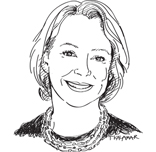
Lynda Gratton
(1955-)
Author, academic, and management consultant Lynda Gratton is professor of management practice, London Business School. Ranked No. 1, Human Resources Magazine’s 2011 Top 25 HR Most Influential UK Thinkers. Authored “Hot Spots: Why Some Teams, Workplaces and Organizations Buzz with Energy and Others Don’t” and founded Hot Spots Movement—academics and businesses bringing energy and innovation to people in organizations. Lead researcher of Future of Work Consortium, conducting cocreation experiments with management, academics, and executives.
Notice: Only variables should be passed by reference in /home/nycpcom/public_html/www.nycp.com/page/authors.php on line 71
View Quotes
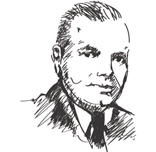
Marvin Bower
(1903-1999)
Considered the founding father of management consulting, Marvin Bower led McKinsey & Co. following the death of James McKinsey in 1937. Turned McKinsey into one of the world’s foremost consulting firms, and was the first to hire inexperienced MBAs and take a consulting firm international. Wrote several books on management, leadership, and the importance of professionalism. Held an MBA from Harvard Business School.
Notice: Only variables should be passed by reference in /home/nycpcom/public_html/www.nycp.com/page/authors.php on line 71
View Quotes
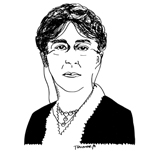
Mary Parker Follett
(1868–1933)
Management consultant and social worker Mary Parker Follett was considered a visionary in human relations, organizational theory, and public administration. Argued and wrote against over managing employees, espoused the benefits of conflict resolution in the workplace and in society, and consulted to President Theodore Roosevelt. Graduated from what became Radcliffe College but as a woman was refused participation in Harvard’s PhD program.
Notice: Only variables should be passed by reference in /home/nycpcom/public_html/www.nycp.com/page/authors.php on line 71
View Quotes

Max Weber
(1864-1920)
Sociologist and author Max Weber became interested in social policy and began writing his thoughts on economics being the catalyst for social change. Best known for his work “The Protestant Ethic and the Spirit of Capitalism.” Along with Karl Marx and Émile Durkheim, developed the modern conception of social sciences. Educated at Universities of Heidelberg and Berlin.
Notice: Only variables should be passed by reference in /home/nycpcom/public_html/www.nycp.com/page/authors.php on line 71
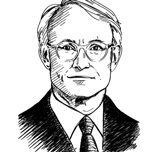
Michael E. Porter
(1947-)
Michael E. Porter is known as the “father of the modern strategy field.” Created the New CEO Workshop at Harvard Business School. Active role in developing U.S. economic policy with the U.S. executive branch and Congress. Advises national leaders in numerous countries on competitiveness. Received the first Lifetime Achievement Award in Economic Development from the U.S. Department of Commerce. Bishop William Lawrence Professor at Harvard Business School. Holds degrees from Princeton University, Harvard Business School, and Harvard University.
Notice: Only variables should be passed by reference in /home/nycpcom/public_html/www.nycp.com/page/authors.php on line 71
View Quotes
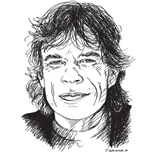
Mick Jagger
(1943-)
Musician, singer, songwriter and business manager Mick Jagger in 1962 joined the Rolling Stones, which has become one of the most influential, successful, and long-lived rock bands. Has been the manager of the Stones’ affairs since 1972 and has toured consistently since then. His implementation of merchandising and his world-touring strategy have since become norms in the music industry. Knighted in 2003. Attended the London School of Economics.
Notice: Only variables should be passed by reference in /home/nycpcom/public_html/www.nycp.com/page/authors.php on line 71
View Quotes
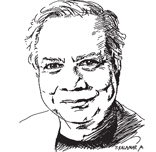
Muhammad Yunus
(1940-)
Economist and Nobel Peace Prize recipient Muhammad Yunus created the Grameen Bank in Bangladesh in 1983 to extend microcredit to members of poverty-stricken communities. Has received numerous awards from nations worldwide, including the two highest American civil honors, the Presidential Medal of Freedom in 2009 and the Congressional Gold Medal in 2010. Studied at Dhaka University in Bangladesh and studied economics at Vanderbilt University under a Fulbright scholarship, receiving a PhD.
Notice: Only variables should be passed by reference in /home/nycpcom/public_html/www.nycp.com/page/authors.php on line 71
View Quotes

Nicolo Machiavelli
(1469-1527)
Author and political scientist Niccolò Machiavelli was a Florentine official and diplomat during the Renaissance. Remembered for his writings, especially “The Prince,” which discussed how a ruler can gain power and keep it, and revolutionized many fields of thought. Considered the father of modern political science and political ethics.
Notice: Only variables should be passed by reference in /home/nycpcom/public_html/www.nycp.com/page/authors.php on line 71
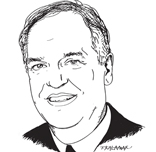
Paul Polman
(1956-)
Unilever CEO Paul Polman is known as a maverick leader whose goal is “a sustainable business model…at the service of the greater good.” Held executive positions at Procter & Gamble and Nestlé. President, Kilimanjaro Blind Trust; chairman, Perkins International Advisory Board; member, U.N. Global Impact Board; vice chairman, World Business Council for Sustainable Development; and board member, Conservation International. Honored with C.K. Prahalad Global Sustainability Leadership Award. Educated at University of Groningen (Netherlands) and University of Cincinnati.
Notice: Only variables should be passed by reference in /home/nycpcom/public_html/www.nycp.com/page/authors.php on line 71
View Quotes
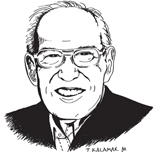
Peter F. Drucker
(1909-2005)
Author and teacher Peter F. Drucker, “the man who invented management,” called himself a social ecologist. Created the foundations of modern management and influenced the thinking of many leaders of the 20th century, from Margaret Thatcher to Alfred Sloan. Wrote 39 books translated into more than 30 languages about business, centering on people, responsibility, and society. Taught at Bennington College, New York University, and Claremont Graduate University’s graduate school of management. Earned a doctorate from Frankfurt University.
Notice: Only variables should be passed by reference in /home/nycpcom/public_html/www.nycp.com/page/authors.php on line 71
View Quotes
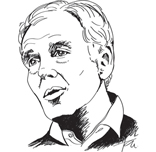
Peter Senge
(1947–)
Scientist Peter Senge is founding chair of the Society for Organizational Learning, which is centered on systems thinking. Named a “Strategist of the Century” by the Journal of Business Strategy in 1999. Wrote “The Fifth Discipline: The Art and Practice of the Learning Organization,” hailed by Harvard Business Review as a seminal management book. Lectures on leadership and sustainability at MIT Sloan School of Management. Earned a degree in aerospace engineering from Stanford University and an MS and a PhD from MIT.
Notice: Only variables should be passed by reference in /home/nycpcom/public_html/www.nycp.com/page/authors.php on line 71
View Quotes
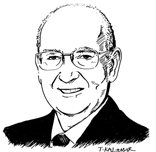
Phillip Kotler
(1931-)
Economist and educator Philip Kotler wrote the most widely used marketing textbook in business schools worldwide, “Marketing Management.” Since 1962, has taught at Northwestern University’s Kellogg School of Management, where he is S.C. Johnson & Son Distinguished Professor of International Marketing. Has numerous honorary degrees, and awards from the American Marketing Association and others. Holds degrees in economics from DePaul University, University of Chicago, and MIT.
Notice: Only variables should be passed by reference in /home/nycpcom/public_html/www.nycp.com/page/authors.php on line 71
View Quotes

Phillip Selznick
(1919-2010)
Sociologist and scholar Philip Selznick developed many theories in the field of organizational management. Known for his contributions to the sociology of law and is credited with being a founder of the institutional perspective in organization theory. Taught at the University of California, Berkeley, 1952–1984, first in the sociology department and later on the law faculty. Educated at City College of New York and Columbia University.
Notice: Only variables should be passed by reference in /home/nycpcom/public_html/www.nycp.com/page/authors.php on line 71
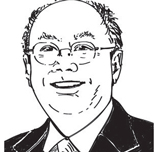
Po Chung
(1943-)
Executive Po Chung in 1972 cofounded DHL International, which became the world’s leading express and logistics company, linking 227 countries and territories. Cofounded the Centre for Asian Entrepreneurship & Business Values. Officer of the British Empire. Studied at St. Stephen’s College (Hong Kong); in U.S., attended University of the Seven Seas for oceanography, Whittier College for zoology, and earned a BS from Humboldt State University in fisheries management. Attended the Stanford Executive Program and the IMD Presidents Program.
Notice: Only variables should be passed by reference in /home/nycpcom/public_html/www.nycp.com/page/authors.php on line 71
View Quotes
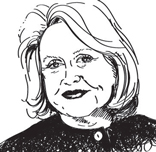
Regina Herzlinger
(1949-)
Professor and author Regina Herzlinger is known internationally for her work on health care. Coined the term “consumer-driven health care” and briefed the U.S. House of Representatives on health care in 2009. Has written two books on the subject, both best-sellers. Is leading an entrepreneurial effort focused on health care reform. First woman to be tenured and chaired at the Harvard Business School. Holds degrees from MIT and Harvard Business School.
Notice: Only variables should be passed by reference in /home/nycpcom/public_html/www.nycp.com/page/authors.php on line 71
View Quotes

Rensis Likert
(1903-1981)
Educator and psychologist Rensis Likert, for his graduate thesis in psychology, devised the Likert scale, which was a more effective way to gauge the attitudes of survey participants. Founded the University of Michigan’s Institute for Social Research and later cofounded the Institute for Corporate Productivity. His theories were integral to Japan’s growth in the 1960s and 1970s. Received degrees from University of Michigan and Columbia University.
Notice: Only variables should be passed by reference in /home/nycpcom/public_html/www.nycp.com/page/authors.php on line 71

Ricardo Semler
(1959-)
Businessman and author Ricardo Semler worked in his father’s company until he realized that his ideas clashed with his father’s autocratic form of management. When he threatened to quit, his father handed the reins over to him completely, allowing him to shift the company’s focus and drive it to growth, eventually increasing profits fiftyfold. Known for breaking traditional management molds, and focusing on industrial democracy and work-life balance. Graduated from Harvard Business School.
Notice: Only variables should be passed by reference in /home/nycpcom/public_html/www.nycp.com/page/authors.php on line 71

Robert E. Wood
(1879-1969)
Brigadier General and businessman Robert E. Wood worked for Montgomery Ward and then for Sears, Roebuck and Co., shifting the company away from mail-order sales and transforming it into a retail giant in his 30 years there. During World War II, had the company plan for what consumers would want when it ended. Founded Allstate Insurance as a subsidiary of Sears. Attended West Point and was stationed in the Philippines during the Philippine insurrection, and at the Panama Canal during its construction.
Notice: Only variables should be passed by reference in /home/nycpcom/public_html/www.nycp.com/page/authors.php on line 71
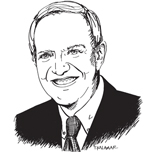
Robert H. Waterman
(1947)
Internationally recognized writer and speaker Robert H. Waterman led the organizational practice at McKinsey & Co. for over a decade, where he was a director and coauthored “In Search of Excellence” with Tom Peters. Active in a number of foundations focused on neurological disorders and leads the Waterman Group. Studied geophysics at the Colorado School of Mines and went to Stanford University for his MBA.
Notice: Only variables should be passed by reference in /home/nycpcom/public_html/www.nycp.com/page/authors.php on line 71
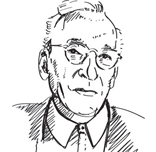
Robert K. Greenleaf
(1904-1990)
Management director, professor, and author Robert K. Greenleaf, worked as a researcher and manager for AT&T. Published “The Servant as Leader” in 1970, which introduced the concept of leading by being a servant first and leader second. Became a lecturer at MIT, Harvard University, and Dartmouth College. Graduated from Carleton College.
Notice: Only variables should be passed by reference in /home/nycpcom/public_html/www.nycp.com/page/authors.php on line 71
View Quotes

Robert S. Kaplan
(1940-)
Professor and author Robert S. Kaplan is the Marvin Bower Professor of Leadership Development emeritus at Harvard Business School. Has authored or coauthored 14 books and more than 150 papers on leadership and management. Became dean of the business school of Carnegie-Mellon University in 1978, after 10 years on the faculty, and then joined the faculty of Harvard Business School in 1984. Received degrees from MIT and Cornell University.
Notice: Only variables should be passed by reference in /home/nycpcom/public_html/www.nycp.com/page/authors.php on line 71
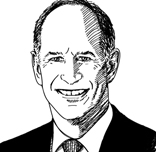
Roger L. Martin
(1956-)
Roger L. Martin is best known for his work on integrative and design thinking. As its dean until 2013, he transformed the University of Toronto Rotman School of Management. He recently founded Rotman’s Martin Prosperity Institute and holds the Premier’s Chair in Productivity and Competitiveness. He rose to number 3 on the Thinkers50 list in 2013, when his book, Playing to Win, co-authored with A.G. Lafley, received the Thinkers50 best book award. A founder and former director of Monitor Co., he holds degrees from Harvard College and Business School.
Notice: Only variables should be passed by reference in /home/nycpcom/public_html/www.nycp.com/page/authors.php on line 71
View Quotes
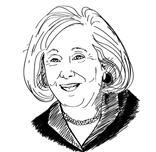
Rosabeth Moss Kanter
(1943-)
Professor and author Rosabeth Moss Kanter has written or cowritten 18 books. One, “The Change Masters,” named one of 20th century’s most influential business books by the Financial Times. Former editor of Harvard Business Review. Often listed as one of 50 most powerful women in the world. Holds 23 honorary doctoral degrees. Ernest L. Arbuckle Professor of Business Administration at Harvard Business School, and chair and director of Harvard’s Advanced Leadership Initiative. Holds degrees from Bryn Mawr College and University of Michigan.
Notice: Only variables should be passed by reference in /home/nycpcom/public_html/www.nycp.com/page/authors.php on line 71
View Quotes
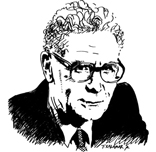
Russell L. Ackoff
(1919-2009)
Professor, theorist, and consultant Russell L. Ackoff is known for his work on operations research and systems thinking. Friend of W. Edwards Deming and Peter Drucker. Taught at Wayne State University, Case Institute of Technology, University of Birmingham, and the Wharton School, University of Pennsylvania. Received degrees from the University of Pennsylvania, including his PhD under C. West Churchman.
Notice: Only variables should be passed by reference in /home/nycpcom/public_html/www.nycp.com/page/authors.php on line 71
View Quotes
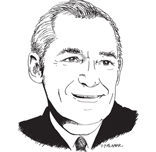
Sam Walton
(1918-1992)
Merchant Sam Walton, after leaving the military after World War II, used a loan to purchase a corner store in Newport, Arkansas. Managed the store to a 100% profit increase over three years, and with the money from this and other store franchises he bought, opened the first Wal-Mart. Emphasized logistics and locations in small towns and rural areas to redefine the American discount retail store. Awarded the Presidential Medal of Freedom in 1992. Worked his way through the University of Missouri, where he was an ROTC cadet.
Notice: Only variables should be passed by reference in /home/nycpcom/public_html/www.nycp.com/page/authors.php on line 71
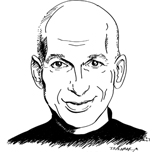
Seth Godin
(1960-)
Author and entrepreneur Seth Godin began his career at Spinnaker Software, then quickly moved on to found Seth Godin Productions, mainly a book packaging business, as well as Yoyodyne, an online marketing company. Began developing the concept for permission marketing—a style the opposite of interruption marketing, which was then the norm. Author of 14 best-selling books and the most popular marketing blog, Seth’s Blog. Graduated from Tufts and Stanford Universities.
Notice: Only variables should be passed by reference in /home/nycpcom/public_html/www.nycp.com/page/authors.php on line 71
View Quotes

Sir Cyril Burt
(1883-1971)
Psychologist Sir Cyril Burt conducted a survey in 1907 of the intelligence of the people of Britain and realized that heredity had very little to do with it, as was the common assumption. Then began developing the concept of IQ, running many surveys and tests over the course of his life. Spent the other half of his time developing educational psychology in Britain. Attended Jesus College, Oxford.
Notice: Only variables should be passed by reference in /home/nycpcom/public_html/www.nycp.com/page/authors.php on line 71

Soichiro Honda
(1906-1991)
Mogul and engineer Soichiro Honda created a company that sold piston rings to Toyota Motor Co., but the main factory was destroyed in an American bombing in 1944. Sold what was left of the company to Toyota and used the capital to form Honda Motor Co., which started manufacturing motorcycles. Within 10 years, Honda was outselling Harley-Davidson and Triumph in their home markets. Expanded his markets and became the icon of Japanese automobile innovation.
Notice: Only variables should be passed by reference in /home/nycpcom/public_html/www.nycp.com/page/authors.php on line 71
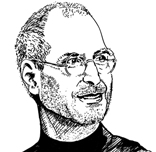
Steve Jobs
(1955-2011)
Technology pioneer and executive Steve Jobs co-founded Apple in 1976 and turned it into one of the most successful computer hardware and software companies in the world. Acquired and ran Pixar Animation Studios in 1986, before selling it to the Walt Disney Co. in 2006. Awarded the National Medal of Technology in 1984. Compared to Henry Ford and Thomas Edison by the New York Times.
Notice: Only variables should be passed by reference in /home/nycpcom/public_html/www.nycp.com/page/authors.php on line 71
View Quotes

Sumantra Ghoshal
(1948-2004)
Management thinker and author Sumantra Ghoshal, with Christopher Bartlett, pioneered research on the importance of adaptability for the new era, which has created the need for what he dubbed “transnational enterprises. Taught at INSEAD and MIT Sloan School of Management. Wrote or cowrote 12 books and over 60 articles. Graduated from Delhi University and held doctorates from Harvard Business School and MIT Sloan School of Management.
Notice: Only variables should be passed by reference in /home/nycpcom/public_html/www.nycp.com/page/authors.php on line 71

Sun Tzu
(544-496 BC)
Ancient general and philosopher Sun Tzu was born during the Zhou Dynasty in China. His book, “The Art of War,” is one of the most consulted and revered documents in the history of military strategy, and its influence on Asian culture and worldwide strategy is unmatched. Since its dispersion into western culture, it has become a philosophical document, used by all types of people to deal with conflict. His work continues to inform warfare and politics to this day.
Notice: Only variables should be passed by reference in /home/nycpcom/public_html/www.nycp.com/page/authors.php on line 71
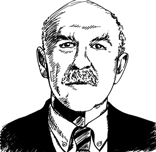
Ted Levitt
(1925-2006)
Economist and professor Ted Levitt is known as the father of marketing and wrote the first books on marketing. Brought the term “globalization” into the mainstream. Taught at North Dakota University and Harvard Business School. Editor of Harvard Business Review, 1985–1989, and chair of the marketing unit at the Harvard Business School. Educated at Antioch College and Ohio State University.
Notice: Only variables should be passed by reference in /home/nycpcom/public_html/www.nycp.com/page/authors.php on line 71
View Quotes

Theodore Vail
(1845-1920)
Industrialist and businessman Theodore Vail studied telegraphy and became general superintendent of the Railway Mail Service before getting involved in the telephone business. Became president of American Telephone & Telegraph and was instrumental in making the telephone a nationally recognized service. Favored monopolizing telephone service in America, telling President Woodrow Wilson that a central service would spread faster and be more reliable.
Notice: Only variables should be passed by reference in /home/nycpcom/public_html/www.nycp.com/page/authors.php on line 71

Thomas Edison
(1847-1931)
Inventor and businessman Thomas Edison went to school for three months, then was taught at home and performed his own experiments. Invented some of the most important advancements of the modern era, including the incandescent light bulb, a system to broadly distribute electricity, improvements to the telephone and telegraph, an electric vote counter, and the phonograph. Used mass production, one of the first to do so. Research component of his company Edison General Electric was one of the first industrial research laboratories.
Notice: Only variables should be passed by reference in /home/nycpcom/public_html/www.nycp.com/page/authors.php on line 71

Thomas J. Watson Sr.
(1874-1956)
Businessman Thomas J. Watson Sr. was out of a job in 1896 when he began working for the National Cash Register Co., where he rose to become general sales manager. Hired to manage a company called Computing-Tabulating-Recording Co., which later merged with International Business Machines, or IBM. IBM was heavily involved in the U.S. effort during World War II, but Watson refused to make more than 1% profit from any military contract. Upon his death, was lauded as the world’s greatest salesman.
Notice: Only variables should be passed by reference in /home/nycpcom/public_html/www.nycp.com/page/authors.php on line 71

Tojin Eapen
()
Tojin Eapen Drucker won Challenge Essay Contest winner from 2013 in the Manager/Entrepreneur category.
Notice: Only variables should be passed by reference in /home/nycpcom/public_html/www.nycp.com/page/authors.php on line 71
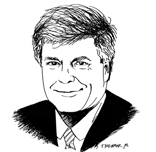
Tom Davenport
(1960-)
Consultant, author, and professor Tom Davenport has written or cowritten 14 books on e-business and the new economy. Named one of the top 25 consultants in the world by Consulting magazine in 2003. Often contributes to Harvard Business Review, MIT Sloan Management Review, and Financial Times. Teaches information technology management at Babson College. Has taught at Harvard Business School, University of Chicago, Dartmouth’s Tuck School of Business, and University of Texas, Austin. Received degrees from Trinity and Harvard Universities.
Notice: Only variables should be passed by reference in /home/nycpcom/public_html/www.nycp.com/page/authors.php on line 71
View Quotes
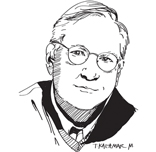
Tom Peters
(1942-)
Management expert, speaker, and author, nicknamed the über-guru by the Economist, Tom Peters coauthored with Robert Waterman “In Search of Excellence,” one of the best business books of the 20th century. Has written a dozen other best-selling books. Served in the U.S. Navy, worked as a White House drug abuse adviser and was a partner at McKinsey & Co. Trained as an engineer at Cornell University, and earned an MBA and PhD in business at Stanford University.
Notice: Only variables should be passed by reference in /home/nycpcom/public_html/www.nycp.com/page/authors.php on line 71
View Quotes
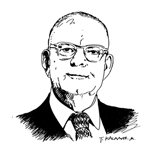
W. Edwards Deming
(1900-1993)
Statistician, physicist, and electrical engineer W. Edwards Deming was known for his work using statistics to improve quality and streamline processes for manufacturers. Presented his theories in U.S. during World War II, where they fell on deaf ears. Took his ideas to Japan in 1950. His “14 Points for Management” strategy turned Japan into a global manufacturing powerhouse. His ideas returned to the U.S. as part of the quality revolution in the 1980s. Held degrees from University of Wyoming, University of Colorado, and Yale University.
Notice: Only variables should be passed by reference in /home/nycpcom/public_html/www.nycp.com/page/authors.php on line 71
View Quotes

Walter Wriston
(1919-2005)
Banker Walter Wriston from 1967 to 1984 was CEO of Citibank, where he authorized numerous innovations such as the ATM, interstate banking, and advancements in the credit card business. Considered the most influential commercial banker of his time. While in the U.S. State Department’s foreign service, helped negotiate the exchange of Americans held prisoner in Japan for Japanese interned in the U.S. Graduated from Wesleyan University and Tufts University.
Notice: Only variables should be passed by reference in /home/nycpcom/public_html/www.nycp.com/page/authors.php on line 71
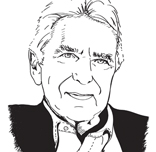
Warren Bennis
(1925-)
Scholar, organizational consultant, and author Warren Bennis is one of the pivotal figures in leadership thinking. Graduated from Antioch College and became Douglas McGregor’s protégé there. Best known for authoring “Leaders,” named one of the top 50 books of all time by the Financial Times. Holds a distinguished professorship at University of Southern California Marshall School of Business. Was a Pulitzer Prize nominee, and received both the Purple Heart and the Bronze Star for his service in World War II.
Notice: Only variables should be passed by reference in /home/nycpcom/public_html/www.nycp.com/page/authors.php on line 71
View Quotes

Wendy Kopp
(1967-)
CEO and education visionary Wendy Kopp in her senior thesis at Princeton University proposed a plan to provide all children with the opportunity for a quality education. To realize that mission, in 1991 founded Teach for America, which she still chairs. In 2007, became founding CEO of Teach for All, a global network that expands the mission internationally.
Notice: Only variables should be passed by reference in /home/nycpcom/public_html/www.nycp.com/page/authors.php on line 71
View Quotes
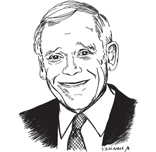
William H. Donaldson
(1931-)
Professor, adviser, and serial entrepreneur William H. Donaldson cofounded the Yale School of Management. Currently chairman of private investment firm Donaldson Enterprises and a member of President Barack Obama’s Economic Recovery Advisory Board. Served as CEO of the New York Stock Exchange, Aetna, and investment banking firm Donaldson, Lufkin & Jenrette. Chairman of the U.S. Securities and Exchange Commission, 2003–2005. Special adviser to Vice President Nelson Rockefeller. Holds degrees from Yale University and Harvard Business School.
Notice: Only variables should be passed by reference in /home/nycpcom/public_html/www.nycp.com/page/authors.php on line 71
View Quotes